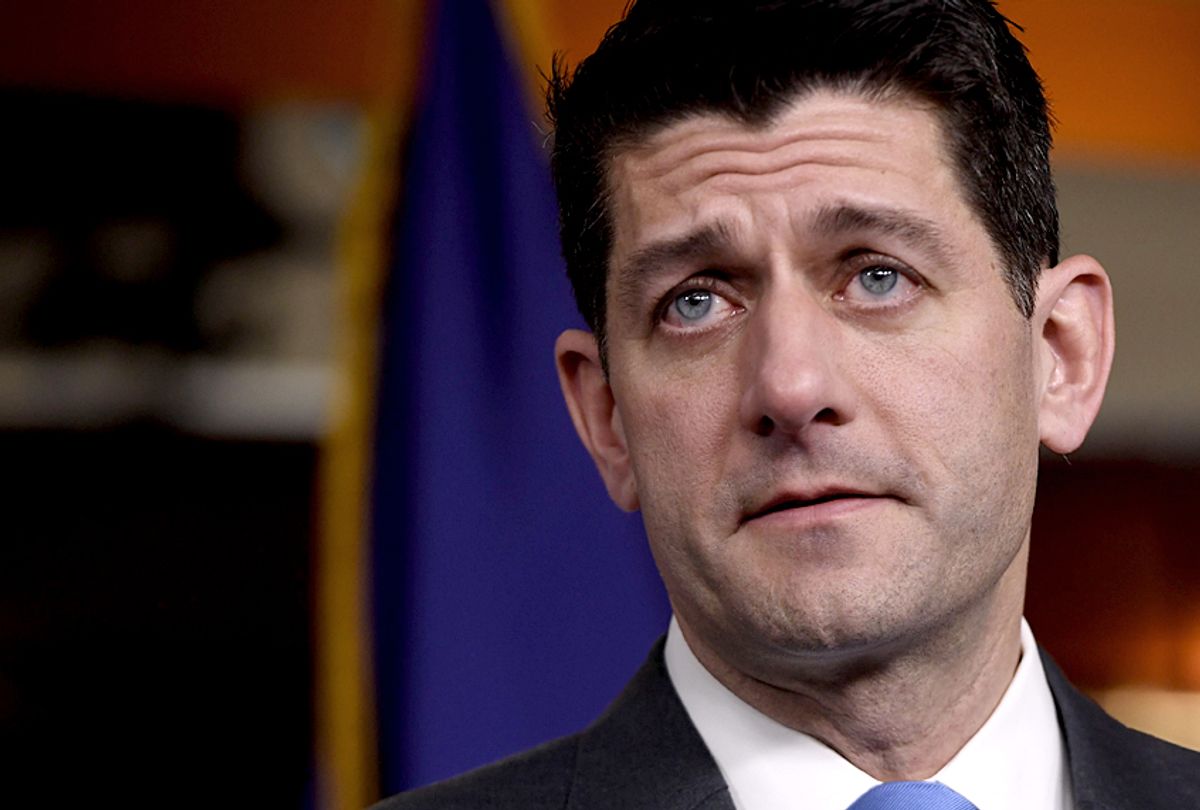Former House Speaker Paul Ryan warned that President Donald Trump could be defeated in 2020 if his second presidential campaign relies on his personality alone.
Ryan, the former Republican vice presidential candidate who served as speaker of the House from 2015 until leaving Congress two months ago, explored at a Monday speech in Vero Beach, Fla., how Democrats could deny Trump a second-term in the Oval Office – and make him the first one-term president since the early 1990s if his reelection efforts fail.
"The person who defines that race is going to win the race. If this is about Donald Trump and his personality, he isn't going to win it," Ryan said in some of his first public remarks since retiring from Congress in January, according to Treasure Coast Newspapers.
Ryan's hour-long speech focused heavily on policy, Treasure Coast Newspapers reported, and urged the president do to the same during his reelection campaign. He told attendees he believes there are some Democrats who could unseat Trump in 2020 if the commander-in-chief does not define himself through his policy platform.
Ryan left the lower chamber in January after seeing Republicans lose control of the House during last November's midterm elections. The former Wisconsin congressman did not run for reelection in November, putting an end to his three years as the most powerful member in the House of Representatives. He often clashed publicly with the president while wielding the gavel over issues like immigration, birthright citizenship and the country's relationship with Russia, which reportedly caused tension between the two men.
Ryan has been on the receiving end of the president's public attacks since he left office in January, especially over his failure to deliver the funds Trump requested to construct his long-promised wall along the U.S.-Mexico border before Republicans lost control of the House.
Ryan said he hopes Congress tackles immigration issues, including border security, and called for reforms for several visa programs. He added that he hopes Congress reaches a permanent solution for "dreamers," migrants who were brought to the U.S. illegally as children by undocumented parents under the Deferred Action for Childhood Arrivals (DACA) program.
Ryan also complained that political polarization in Congress contributed to gridlock, and he called his party's failed and drawn-out efforts to repeal and replace the Affordable Care Act one of the biggest mistakes of his tenure. He blamed the super-conservative House Freedom Caucus for holding up the lower chamber's version of the bill, which he said "eroded public support for it" and gave the Democrats time to rally support against the GOP's efforts. By the time the Republican-led legislation arrived in the Senate, where it was defeated, "it was hanging on a thread," Ryan said.
But he also argued that he had many policy successes during his three-year tenure as House speaker, noting he felt achievements including the Republican-led tax reform plan, bipartisan criminal justice reform, response to the opioid crisis and deregulatory reforms had been overlooked. Ryan claimed he would have been able to accomplish more throughout his time as the House Republican leader if not for the Senate's filibuster rules, which require 60 votes to pass any major legislation. Ryan blamed the Senate's filibuster rule for preventing Republican-led efforts on healthcare and to entitlement programs like Medicare and Medicaid.
The former House speaker also said technology has contributed to the country's growing partisan divide and claimed that the "entertainment wings" of each political party are working on "monetizing" emotions instead of on upholding the values of their parties.



Shares